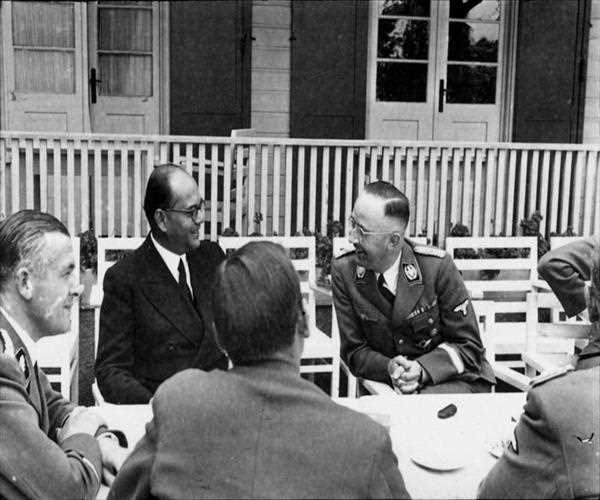In the years leading up to World War II, Subhas Chandra Bose was a leading voice in the Indian independence movement. He was a fierce critic of British rule and worked tirelessly to rally support for independence. In the late 1930s, Bose began seeking foreign support for India's independence cause. Bose believed that an alliance with the Axis powers would give Indian Independence a much needed boost.
Subhas Chandra Bose was an Indian independence activist who was exiled from British India in the 1930s. In 1941, as the Second World War raged on, Subhas Chandra Bose made a fateful decision. He would leave India, and travel to Germany in the hopes of securing their help in India's fight for independence from the British. Bose was not the only Indian nationalist to seek out the Axis powers in an attempt to secure their help. Others, such as Jawaharlal Nehru, disapproved of this approach. But Bose was convinced that it was the only way to achieve India's independence.

Bose's journey to Germany was not an easy one. He had to travel through hostile territory, and was even captured by the British at one point. But he eventually made it to Germany, where he met with Adolf Hitler. Hitler was initially dismissive of Bose and his requests for help. But Bose was adamant, and eventually Hitler agreed to provide some military assistance to the Indian independence movement. Bose's stay in Germany was short-lived, however. He later resurfaced in Nazi Germany, where he attempted to secure military assistance for his cause. However, Bose was never able to gain the full support of the German government, and he ultimately left the country empty-handed. As the war turned against the Axis powers, Bose became increasingly disillusioned with Hitler and the Nazi regime. He eventually left Germany and made his way to Japan, where he teamed up with the Imperial Japanese Army in the hopes of driving the British out of India. While Bose never received any direct assistance from the Germans, his time in the country was not entirely fruitless. He was able to forge relationships with several high-ranking Nazi officials, including Hermann Goering and Heinrich Himmler. These connections would prove instrumental in Bose's later efforts to secure Japanese assistance for his Indian independence movement. In the end, Subhas Chandra Bose's quest for German assistance was ultimately unsuccessful. However, his time in the country did lay the groundwork for his later successes in securing Japanese support for his cause.